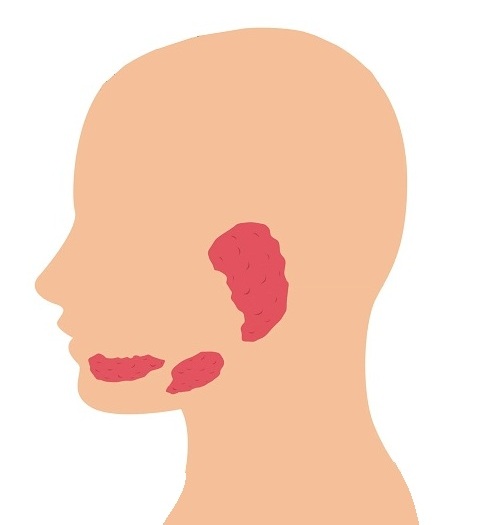
Salivary Gland Tumor Surgery
Salivary gland tumors are abnormal cells growing in the salivary gland or in the tubes (ducts) that drain the glands. Salivary gland tumors can be noncancerous (benign) or cancerous (malignant). Although most salivary gland tumors are benign, some are malignant.
Salivary Gland Tumor Surgeon
Dr. Siddharth Shah is an expert Salivary Gland Tumor Surgeon who is skilled to manage salivary gland cancers. He has mastered the skill of parotid surgery in particular preserving the facial nerve function. He has an expert to perform scarless surgery for submandibular gland tumors. He gives excellent results in salivary gland tumors surgeries. He is a pioneer in minimal access surgery for salivary gland tumors.
Salivary gland tumours most often present as painless enlarging masses. Most are located in the parotid glands and most are benign. The majority of these neoplasms are benign and only 20% are malignant. The etiological agents of salivary gland cancers remain unclear. possible risk factors include therapeutic radiation for other head and neck cancers, occupational exposures in rubber manufacturing and woodworking, and also employment at hairdressers or beauty shops.History of previous cancers, related to Epstein-Barr virus, immunosuppression, and radiation were also associated with an increased risk of salivary gland cancer.The principal hurdle in their management lies in the difficulty in distinguishing benign from malignant tumours. Investigations such as fine needle aspiration cytology and MRI scans provide some useful information, but most cases will require surgical excision as a means of coming to a definitive diagnosis. Benign tumours and early low-grade malignancies can be adequately treated with surgery alone, while more advanced and high-grade tumours with regional lymph node metastasis will require postoperative radiotherapy. Clinical features suspicious for malignancy include ipsilateral facial nerve palsy, sudden tumour growth, pain, tumour fixation to the overlying skin or underlying muscle, and cervical lymphadenopathy.
Salivary gland tumor surgery in Ahmedabad
Looking for salivary gland tumor surgery in Ahmedabad? Dr Siddharth Shah is a leading salivary gland tumor surgeon in ahmedabad and renowned for endoscopic salivary gland tumor surgery in ahmedabad. With the core focus of performing minimally invasive and scarless salivary gland cancer surgeries, he is one of the most trusted and experienced throat cancer surgeon in Gujarat.
Symptoms
Painless swelling in front of the ear, below the jaw or over palate, gradually increasing hard swelling, advanced cases present with facial weakness/palsy
Cure/Solution
The treatment for Salivary Gland Tumor include Submandibular gland excision, facial nerve sparing parotidectomy(partial or total), palatal exicision.
Best Surgeon for Salivary Gland Tumor Surgery in Ahmedabad
Most small salivary gland tumors begin in the palate (roof of the mouth). More than half of all salivary gland tumors are benign (not cancerous) and do not spread to other tissues.
About 80 percent of salivary gland tumors start in these glands. About 75 percent of these tumors are benign (usually a type called pleomorphic adenomas) and 25 percent are malignant.
A lump or swelling in your mouth, cheek, jaw, or neck. Pain in your mouth, cheek, jaw, ear, or neck that does not go away. A difference between the size and/or shape of the left and right sides of your face or neck. Numbness in part of your face.
Many salivary gland cancers can often be cured, especially if found early. Although curing the cancer is the primary goal of treatment, preserving the function of the nearby nerves, organs, and tissues is also very important.
About 2 out of every 3 salivary gland cancers are found in people 55 and older, with an average age of 64. Radiation exposure. Radiation therapy to the head or neck for another medical reason may increase the risk of developing salivary gland cancer.
Causes include dehydration, smoking and exposure to radiation. Most salivary tumors are noncancerous, and small blockages may pass without treatment.
Most cases surgery is the primary treatment of the salivary gland tumors preserving the surrounding nerves and vital structures. For advanced cases or advanced tumors post operative radiation may be advised. Chemotherapy may be given for advanced and recurrent cases.

